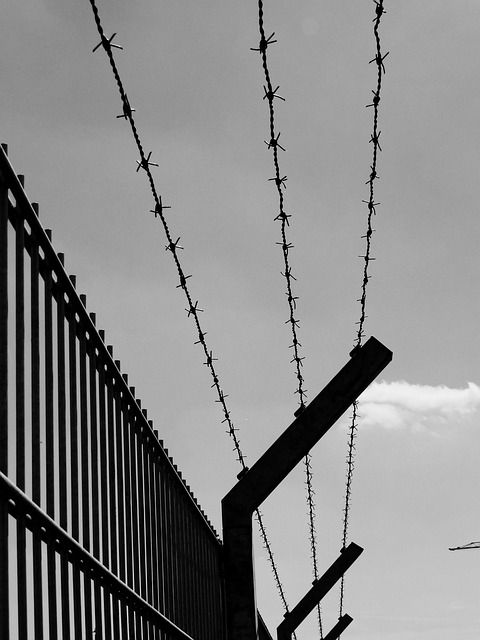Rural vs urban DUI legislation significantly impacts insurance adjustments, with harsher penalties and higher rates in urban areas due to stricter enforcement and competitive markets, while rural areas offer lower costs but face challenges from reduced resources and potential underreporting of DUIs, creating unique risks for drivers post-DUI.
In the realm of insurance adjustments, a DUI conviction can significantly alter an individual’s coverage landscape. This article delves into the nuanced differences between rural and urban areas’ DUI laws, highlighting how geographical location impacts insurance adjustments. We explore various insurance coverage options available to DUI offenders and navigate the challenging post-DUI restoration periods and rates. Understanding these factors is crucial for individuals seeking to regain mobility and financial stability after a DUI-related incident.
- Understanding DUI Laws in Rural vs Urban Areas
- Impact of Geographical Location on Insurance Adjustments
- Insurance Coverage Options for DUI Offenders
- Navigating Post-DUI Restoration Periods and Rates
Understanding DUI Laws in Rural vs Urban Areas

DUI legislation varies significantly between rural and urban areas, reflecting differing social dynamics and enforcement priorities. In urban centers, with higher population densities and more diverse communities, DUI laws tend to be strictly enforced due to the potential for widespread impact on public safety. This often results in harsher penalties, including longer license suspensions and mandatory ignition interlock devices.
In contrast, rural areas face unique challenges when it comes to DUI enforcement. Lower population densities mean fewer resources for law enforcement, leading to less frequent patrols and potentially less stringent prosecution. However, this doesn’t diminish the severity of drunk driving in these areas; the lower visibility may actually contribute to higher rates of alcohol-related accidents. As such, understanding these rural-urban disparities is crucial for navigating insurance adjustments post-DUI.
Impact of Geographical Location on Insurance Adjustments

The impact of geographical location plays a significant role in insurance adjustments post-DUI, particularly when comparing rural and urban areas. In urban regions, often characterized by dense populations and stringent DUI legislation, insurance premiums tend to be higher due to increased risk factors. These include heavy traffic congestion, more opportunities for law enforcement to conduct random breath tests, and generally stricter penalties for DUI offenses. As a result, insurance companies may offer specialized policies tailored to urban drivers, incorporating features like enhanced safety measures and broader coverage options.
In contrast, rural areas present a different set of challenges. Lower population densities lead to fewer traffic accidents overall, potentially resulting in lower insurance premiums for rural residents. However, the reduced presence of law enforcement means that DUI offenses may go undetected or unpunished, affecting insurance rates indirectly. Rural communities often face unique barriers, such as limited access to public transportation and longer response times for emergency services, which can influence the type of coverage desired by local drivers.
Insurance Coverage Options for DUI Offenders

DUI offenders often face significant challenges when it comes to insurance coverage options, especially in light of stricter rural vs urban DUI legislation. In many regions, individuals convicted of driving under the influence are required to carry higher liability insurance premiums due to the increased risk associated with their behavior. This can lead to substantial financial burdens for offenders, particularly those living in rural areas where access to affordable insurance is often limited.
The disparity between rural and urban DUI legislation plays a significant role in shaping insurance availability. Rural communities may have fewer insurance providers and stricter criteria for coverage, making it harder for DUI offenders to find affordable options. In contrast, urban areas typically offer a wider range of insurance choices, but the competitive market can still result in higher rates for those with a DUI on their record. Understanding these regional differences is crucial for offenders navigating post-DUI insurance adjustments.
Navigating Post-DUI Restoration Periods and Rates

Navigating post-DUI restoration periods and rates varies significantly between rural and urban areas, driven by local legislation and insurance market dynamics. In many rural communities, where populations are less dense and crime rates tend to be lower, DUI penalties often reflect this context, resulting in potentially shorter suspension periods and more flexible reinstatement criteria. This can translate into quicker access to insurance coverage for drivers who have completed their required rehabilitation and met all other legal obligations.
In contrast, urban areas face unique challenges due to higher population densities and more stringent local DUI laws. Restoration periods may be longer, with stricter requirements such as extended license suspensions, ignition interlock devices, or specialized insurance policies. Consequently, the cost of insurance for drivers in urban settings can be substantially higher post-DUI, reflecting these enhanced risks and regulatory frameworks.
In conclusion, navigating insurance adjustments post-DUI requires understanding how geographical location, specifically rural vs urban areas, impacts legislation and subsequently, coverage options. The variations in DUI laws between these settings significantly affect restoration periods and rates, emphasizing the need for drivers to be informed about their rights and available choices. By recognizing these differences, offenders can make more strategic decisions regarding their insurance coverage, ensuring they meet legal requirements while managing costs effectively.






